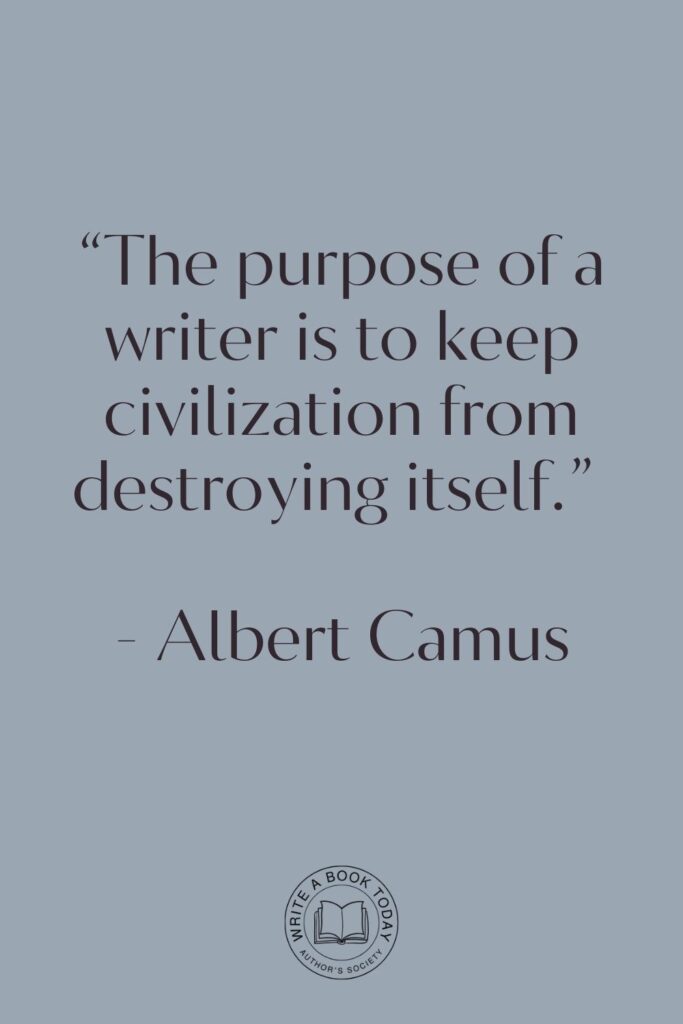Have you ever wondered what separates successful authors from those who struggle to find their footing? It’s not just talent or luck; it’s the daily habits of successful authors that often make the difference. These routines are the secret sauce that fuels creativity, productivity, and perseverance.
From establishing consistent writing routines to celebrating small wins, these habits can be the catalyst for your own writing journey. So, what can you learn from those who have already paved the way to success?
The Power of Daily Habits in Writing
Daily habits are like the heartbeat of a writer’s life, offering rhythm and structure in an otherwise chaotic creative process. Imagine them as the sturdy scaffolding supporting a grand architectural masterpiece, each routine playing a crucial role in building something extraordinary.
For authors, these habits are not just tasks to tick off a list; they are integral to nurturing their craft and fostering inspiration. Consider the analogy of a well-tended garden. Just as plants need consistent care to thrive, writers need daily habits to cultivate their ideas and hone their skills.
By integrating these practices into your life, you create an environment where creativity can flourish. Whether it’s dedicating time to write, read, or reflect, each habit contributes to the bigger picture of author success.
Habit 1: Establishing a Consistent Writing Routine
Why Routine Matters for Author Success
Routine is the backbone of productivity for many successful authors. It provides a predictable framework that allows creativity to blossom within its confines.
A regular writing schedule helps eliminate the dreaded writer’s block by conditioning your mind to be ready for creative work at specific times. Moreover, it reduces decision fatigue, as you no longer waste mental energy deciding when to write.
Create a sacred writing space that is free from distractions. This dedicated area becomes a signal to your brain that it’s time to write, enhancing focus and creativity. Personalize it with items that inspire you, such as favorite books, quotes, or artwork.
Over time, this space will become synonymous with productivity and creativity.
Tips for Creating Your Own Writing Routine
Crafting a writing routine that works for you involves understanding your natural rhythms and preferences. Start by identifying your most productive times of day—are you a morning lark or a night owl?
Then, carve out a dedicated writing block during those peak hours. Consistency is key, so commit to this schedule as you would any important appointment.
- Set realistic daily writing goals.
- Choose a distraction-free environment.
- Use a timer to maintain focus.
Remember, flexibility is also important. Life happens, and there will be days when your routine is disrupted. Instead of being discouraged, adapt and adjust as needed. The goal is to maintain momentum, even if the pace varies.
Habit 2: Setting Clear Goals and Deadlines
The Importance of Goal Setting in Writing
Setting goals is like charting a course on a map—it gives direction and purpose to your writing journey. Clear goals help you stay focused, motivated, and accountable. They transform abstract dreams into tangible milestones, making it easier to track progress and celebrate achievements along the way.
For authors, goals can range from word counts to completion dates for drafts or submissions to publishers. By setting deadlines, you create a sense of urgency that propels you forward, preventing procrastination and fostering a strong work ethic.

How to Set Achievable Writing Goals
When setting writing goals, it’s crucial to strike a balance between ambition and realism. Begin by breaking larger objectives into smaller, manageable tasks. This approach not only makes the process less overwhelming but also provides frequent opportunities for accomplishment.
| Goal Type | Example |
|---|---|
| Short-term | Write 500 words daily |
| Medium-term | Complete first draft in 3 months |
| Long-term | Publish a novel within a year |
Use the SMART criteria (Specific, Measurable, Achievable, Relevant, Time-bound) to define your writing goals. This method ensures clarity and precision, making it easier to track your progress. Regularly review and adjust your goals to reflect changes in your writing journey. This adaptability will keep you aligned with your evolving aspirations.
Habit 3: Embracing the Power of Reading
Why Successful Authors Read Widely
Reading is to writers what water is to plants—a vital source of nourishment. Successful authors understand that exposure to diverse voices and genres enriches their own writing.
It expands vocabulary, sparks creativity, and provides insights into different narrative techniques. Moreover, reading widely helps authors stay informed about industry trends and audience preferences.
By immersing themselves in a variety of literary worlds, authors gain a deeper understanding of storytelling’s nuances. This exposure influences their style and encourages experimentation, ultimately enhancing their own work.
Incorporating Reading into Your Daily Life
Making reading a daily habit can be both enjoyable and beneficial. Start by setting aside a specific time each day for reading, whether it’s during breakfast, on your commute, or before bed. Consider keeping a reading list or journal to track your progress and reflections.
Additionally, explore genres outside your comfort zone to broaden your perspective. Join book clubs or online forums to engage with other readers and share insights. This communal aspect of reading can provide new interpretations and foster a sense of connection.
No marketing platform? No social following? No problem!
Publisher Rocket helps you market your debut novel like a pro.
It’s a gamechanger for debut authors – try it today!


Habit 4: Practicing Mindfulness and Reflection
The Role of Mindfulness in Creative Processes
Mindfulness is the art of being present and fully engaged in the moment, a practice that can significantly enhance a writer’s creativity. By cultivating mindfulness, authors become more attuned to their thoughts, emotions, and surroundings.
This heightened awareness opens the door to new ideas and insights, enriching the creative process.
Moreover, mindfulness helps manage stress and anxiety, common challenges in the writing journey. It encourages a non-judgmental attitude, allowing writers to approach their work with curiosity and openness rather than criticism.
Simple Mindfulness Techniques for Writers
Integrating mindfulness into your daily routine doesn’t require extensive time or effort. Begin with short meditation sessions, focusing on your breath and letting go of distractions. Journaling can also be a powerful mindfulness tool, providing a space to reflect on your thoughts and feelings.
Consider incorporating mindful walks into your day, using nature as a backdrop for reflection and inspiration. These moments of stillness and observation can spark creativity and provide clarity, rejuvenating your writing practice.
Experiment with guided meditation apps designed for creatives. These resources offer structured sessions tailored to enhance focus and relaxation.
Explore different techniques to find what resonates best with your personal writing process. Consistent practice will gradually enhance your mindfulness and creative output.

Habit 5: Networking with Fellow Writers
Building a Supportive Writing Community
Writing can often feel like a solitary endeavor, but connecting with fellow writers can be immensely rewarding. A supportive community offers encouragement, accountability, and fresh perspectives. By engaging with others who share your passion, you gain access to a wealth of knowledge and experience.
Participating in writing groups, workshops, or online forums can provide valuable feedback and motivation. These connections can also lead to collaborative projects, expanding your creative horizons and opening doors to new opportunities.
Benefits of Collaboration and Feedback
Collaboration with other writers introduces new ideas and approaches that can enrich your work. Sharing drafts and receiving constructive feedback helps identify areas for improvement and reinforces strengths. This exchange of ideas fosters growth and development, pushing you beyond your comfort zone.
- Join writing workshops to hone your skills.
- Participate in online forums for diverse perspectives.
- Seek out critique partners for mutual support.
Remember, the writing community is a vast and diverse network. Embrace the opportunity to learn from others’ experiences and to contribute your own insights. This reciprocal relationship can be a source of inspiration and motivation.
Habit 6: Staying Physically Active
How Exercise Boosts Creativity
Physical activity is not only beneficial for the body but also for the mind. Exercise stimulates the release of endorphins, which can enhance mood and creativity. Many successful authors incorporate movement into their daily routines, finding that it clears mental fog and sparks fresh ideas.
Whether it’s a brisk walk, yoga session, or a gym workout, regular exercise can improve focus and concentration. It provides a break from sedentary writing, promoting overall well-being and productivity.
Feeling lost with your debut novel?
Fiverr Pro connects you with expert editors, designers, and marketers – everything you need to get your book ready for success!

Incorporating Movement into Your Writing Day
Incorporating physical activity into your writing day doesn’t have to be complicated. Start with short, frequent breaks to stretch or walk around your workspace.
Consider using a standing desk to alternate between sitting and standing throughout the day.
Explore activities you enjoy, such as dancing, swimming, or cycling, to make exercise a pleasurable part of your routine. By prioritizing movement, you enhance both your physical health and creative capacity.
Habit 7: Taking Breaks and Allowing Downtime
The Science Behind Taking Breaks
Breaks are essential for maintaining productivity and preventing burnout. Research shows that stepping away from work periodically enhances focus and creativity. These pauses allow the brain to rest and recharge, leading to improved problem-solving and idea generation.
For writers, breaks can be a time to disconnect from their work and return with fresh eyes. This renewed perspective often leads to breakthroughs and enhanced writing quality.
Creative Ways to Unwind
Unwinding doesn’t have to be idle time; it can be an opportunity for inspiration. Engage in activities that relax and rejuvenate you, such as listening to music, drawing, or spending time in nature. These moments of leisure can spark new ideas and fuel your creativity.
Consider exploring hobbies unrelated to writing, as they provide a mental shift and prevent creative stagnation. This balance between work and play is crucial for sustaining long-term productivity.

Habit 8: Continuous Learning and Improvement
Investing in Writing Courses and Workshops
Continuous learning is a hallmark of successful authors. By investing in writing courses and workshops, you gain new skills and perspectives that enhance your craft.
These educational opportunities provide structured guidance and feedback, accelerating your growth as a writer.
Many authors credit their success to lifelong learning, as it keeps them adaptable and open to new ideas. Whether it’s mastering a new genre or refining technical skills, education is a valuable tool for author success.
Learning from Other Authors’ Journeys
Learning from the experiences of other authors can be both inspiring and enlightening.
By studying their journeys, you gain insights into the challenges and triumphs they faced. These stories often reveal valuable lessons about perseverance, resilience, and creativity.
Consider reading biographies or listening to interviews with authors you admire. These narratives provide a roadmap for navigating your own writing path, offering guidance and encouragement along the way.
Attend author panels and literary festivals to hear firsthand accounts of writers’ experiences. These events offer a chance to engage with authors directly and ask questions.
They also provide a sense of community and shared purpose among attendees. Embrace these opportunities to expand your knowledge and network.
Habit 9: Maintaining a Positive Mindset
The Impact of Positivity on Writing Success
A positive mindset is a powerful asset for writers, influencing both creativity and resilience. By approaching challenges with optimism, authors can overcome obstacles and maintain motivation. This positive outlook fosters a sense of possibility, encouraging experimentation and growth.
For many successful authors, positivity is a conscious choice that shapes their writing journey. It empowers them to embrace failure as a learning opportunity and to celebrate progress, no matter how small.
Techniques for Cultivating a Positive Attitude
Cultivating positivity involves both mindset and action. Start by practicing gratitude, focusing on the aspects of your writing life that bring joy and fulfillment. Surround yourself with supportive individuals who uplift and encourage you.
Engage in self-care activities that nourish your well-being, such as meditation, journaling, or spending time outdoors. These practices reinforce a positive mindset and enhance your overall writing experience.
Google Docs is for notes. Scrivener is for novels. Upgrade your writing game and try it for free today!

Habit 10: Celebrating Small Wins
Why Acknowledging Progress Matters
Celebrating small wins is a crucial component of sustaining motivation and morale.
Each achievement, no matter how minor, contributes to your overall progress and success. By acknowledging these milestones, you reinforce a sense of accomplishment and boost confidence.
For writers, small wins might include finishing a chapter, receiving positive feedback, or reaching a word count goal. These moments of celebration provide a sense of fulfillment and encourage continued effort.
Ways to Celebrate Your Writing Achievements
Celebrating achievements can be as simple or elaborate as you desire. Consider rewarding yourself with a favorite treat, taking a day off to relax, or sharing your success with friends and family. These gestures reinforce the value of your hard work and dedication.
Additionally, keep a record of your accomplishments in a journal or digital format. This collection of successes serves as a powerful reminder of your growth and perseverance, motivating you to reach even greater heights.








